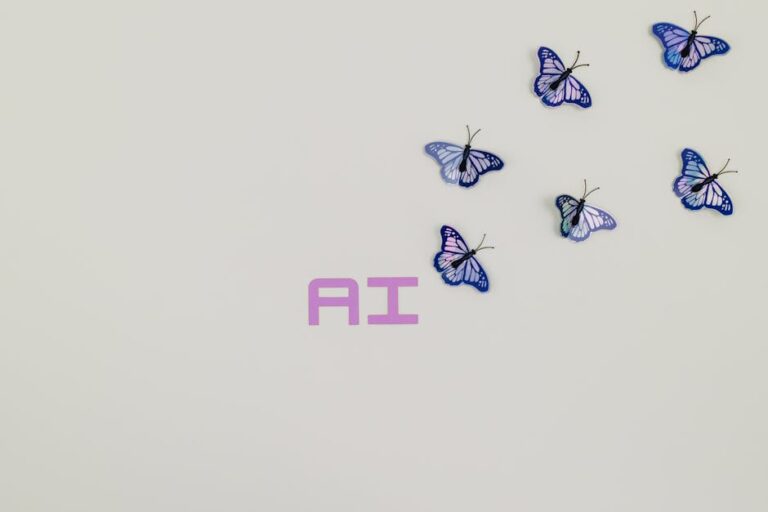Breaking Barriers: The Future of Conversations with AI
Imagine a world where you can talk to AI seamlessly, engaging in natural conversations that feel like interacting with a human. AI chatbots are making this a reality, breaking barriers in communication and setting new standards for customer interactions.
The key to this revolution lies in the ability of AI chatbots to understand and respond to complex queries, using machine learning algorithms to improve their performance over time. As a result, businesses are now able to provide 24/7 customer support, answering frequent questions and helping customers with simple tasks, freeing up human customer support agents to focus on more complex issues. This not only enhances the customer experience but also increases efficiency and reduces costs for businesses.
One of the most exciting aspects of AI chatbots is their ability to learn and adapt to different contexts and cultures. By analyzing vast amounts of data, AI chatbots can develop a deep understanding of the nuances of human language, allowing them to communicate effectively with people from diverse backgrounds. This has significant implications for businesses operating globally, as they can now provide personalized customer support to customers in different languages and regions, breaking down cultural and linguistic barriers.
As AI technology continues to evolve, we can expect to see even more innovative applications of AI chatbots in the future. For instance, AI-powered virtual assistants could become an integral part of our daily lives, helping us manage our schedules, make appointments, and even control our smart home devices. The possibilities are endless, and it’s clear that AI chatbots are poised to play a major role in shaping the future of conversations with technology. With their ability to understand and respond to human language, AI chatbots are breaking down barriers and opening up new possibilities for human-machine interaction, paving the way for a more intuitive and seamless user experience.
Revolutionizing Conversations with AI
AI chatbots are becoming increasingly sophisticated, learning from each interaction to provide personalized responses and solutions. Businesses are embracing AI chatbots to streamline customer support, sales processes, and lead generation, enhancing efficiency and customer satisfaction.
One of the key advantages of AI chatbots is their ability to handle a high volume of conversations simultaneously, making them an ideal solution for businesses that receive a large number of customer inquiries. Additionally, AI chatbots can be integrated with various platforms and systems, allowing them to access a vast amount of data and provide more accurate and informed responses. This has led to a significant reduction in response times, enabling customers to receive assistance and support in a more timely and efficient manner.
The integration of AI chatbots with other emerging technologies, such as natural language processing and machine learning, has further enhanced their capabilities. This has enabled AI chatbots to understand the nuances of human language, including tone, context, and intent, allowing them to provide more empathetic and personalized responses. As a result, AI chatbots are no longer just limited to providing basic support and information, but can now engage in more complex and meaningful conversations, helping to build stronger relationships between businesses and their customers.
As the technology continues to evolve, we can expect to see even more advanced AI chatbots that are capable of learning and adapting at an exponential rate. This will enable businesses to provide even more personalized and tailored experiences for their customers, driving loyalty, retention, and ultimately, revenue growth. With the rise of AI chatbots, the future of conversations with AI is looking brighter than ever, and it will be exciting to see how this technology continues to shape and transform the way we interact with technology and each other.
The Rise of AI Chatbots
By integrating AI chatbots into customer service workflows, businesses can offer round-the-clock support, instant responses, and personalized recommendations. This level of engagement not only enhances customer experiences but also builds trust and loyalty.
As AI chatbots continue to evolve, they are becoming increasingly adept at understanding the nuances of human language, allowing them to provide more accurate and empathetic responses to customer inquiries. This heightened level of emotional intelligence enables businesses to create more meaningful connections with their customers, fostering a sense of community and driving long-term loyalty. Furthermore, AI chatbots can be designed to learn from customer interactions, refining their responses and improving overall customer satisfaction over time.
The benefits of AI-powered customer service extend beyond the customer experience, as they also provide businesses with valuable insights into customer behavior and preferences. By analyzing data from chatbot interactions, companies can identify trends and patterns that inform product development, marketing strategies, and other key business decisions. This data-driven approach enables businesses to stay ahead of the curve, anticipating customer needs and delivering targeted solutions that drive growth and revenue.
In addition to enhancing customer experiences, AI chatbots are also helping businesses to streamline their operations and reduce costs. By automating routine customer support tasks, companies can free up human resources for more complex and high-value tasks, such as resolving complex issues or providing personalized support. This hybrid approach to customer service, combining the efficiency of AI chatbots with the empathy and expertise of human agents, is revolutionizing the way businesses interact with their customers and paving the way for a new era of intelligent automation.
Enhancing Customer Experiences
AI chatbots enable intelligent automation, handling repetitive tasks, data analysis, and decision-making processes with speed and accuracy. This frees up human resources to focus on strategic initiatives, driving innovation and growth. As a result, businesses can optimize their operations, streamline processes, and improve overall efficiency, leading to increased productivity and competitiveness in the market.
The integration of AI chatbots in various industries has also led to enhanced customer experiences. By automating routine inquiries and tasks, chatbots can provide 24/7 support, helping customers resolve issues quickly and efficiently. This not only reduces wait times but also enables human customer support agents to focus on more complex and emotionally demanding issues, requiring empathy and personalized attention. Moreover, AI-powered chatbots can analyze customer data, preferences, and behavior, allowing businesses to tailor their services and offers to meet individual needs, fostering loyalty and satisfaction.
Furthermore, intelligent automation powered by AI chatbots has the potential to transform the way we work and interact with technology. With the ability to learn from data and adapt to new situations, chatbots can assist humans in making informed decisions, predicting outcomes, and identifying opportunities. This collaborative approach can lead to breakthroughs in various fields, such as healthcare, finance, and education, where data-driven insights can drive meaningful change. As AI technology continues to evolve, we can expect to see even more innovative applications of intelligent automation, revolutionizing the way we live, work, and communicate.
In the future, we can anticipate AI chatbots to become even more sophisticated, seamlessly integrating with various devices, platforms, and systems. This will enable businesses and individuals to access a wide range of automated services, from virtual assistants to smart home devices, all controlled by intuitive voice commands or simple text-based interactions. As we embark on this journey, it’s essential to prioritize the development of responsible AI, ensuring that these powerful tools are designed with transparency, accountability, and human values in mind. By doing so, we can unlock the full potential of intelligent automation, creating a future where humans and AI collaborate to achieve greatness.
Intelligent Automation at Your Fingertips
With AI chatbots and intelligent automation, businesses can optimize operations, improve productivity, and drive revenue growth. By embracing AI solutions, companies can stay ahead of the curve, delivering exceptional experiences and maintaining a competitive edge. One of the key benefits of AI-powered chatbots is their ability to provide 24/7 customer support, allowing businesses to cater to a global customer base without incurring excessive labor costs. Additionally, AI-driven chatbots can help companies streamline their customer service processes, reducing response times and increasing customer satisfaction. As a result, businesses can focus on high-value tasks, such as strategy and innovation, while leaving routine customer inquiries to the chatbots. Furthermore, AI solutions can be integrated with existing systems, enabling seamless data exchange and providing valuable insights that can inform business decisions. By leveraging these capabilities, companies can create personalized experiences, anticipate customer needs, and build long-lasting relationships with their customers. In the context of customer service, AI chatbots can be used to route complex issues to human representatives, ensuring that customers receive the support they need while also optimizing the use of human resources. This hybrid approach enables businesses to strike a balance between technology and human touch, providing customers with the best of both worlds. Ultimately, the effective implementation of AI solutions can have a transformative impact on businesses, enabling them to adapt to changing market conditions, stay competitive, and achieve sustainable growth. As the use of AI continues to evolve, it is likely that we will see even more innovative applications of this technology, from predictive analytics to automated content generation. By staying at the forefront of these developments, businesses can unlock new opportunities, drive innovation, and shape the future of their industries. Moreover, the integration of AI with other emerging technologies, such as the Internet of Things (IoT) and blockchain, is expected to create new possibilities for businesses, enabling them to develop more sophisticated and interconnected systems. In this landscape, companies that invest in AI solutions will be well-positioned to capitalize on emerging trends, overcome complex challenges, and achieve long-term success.



